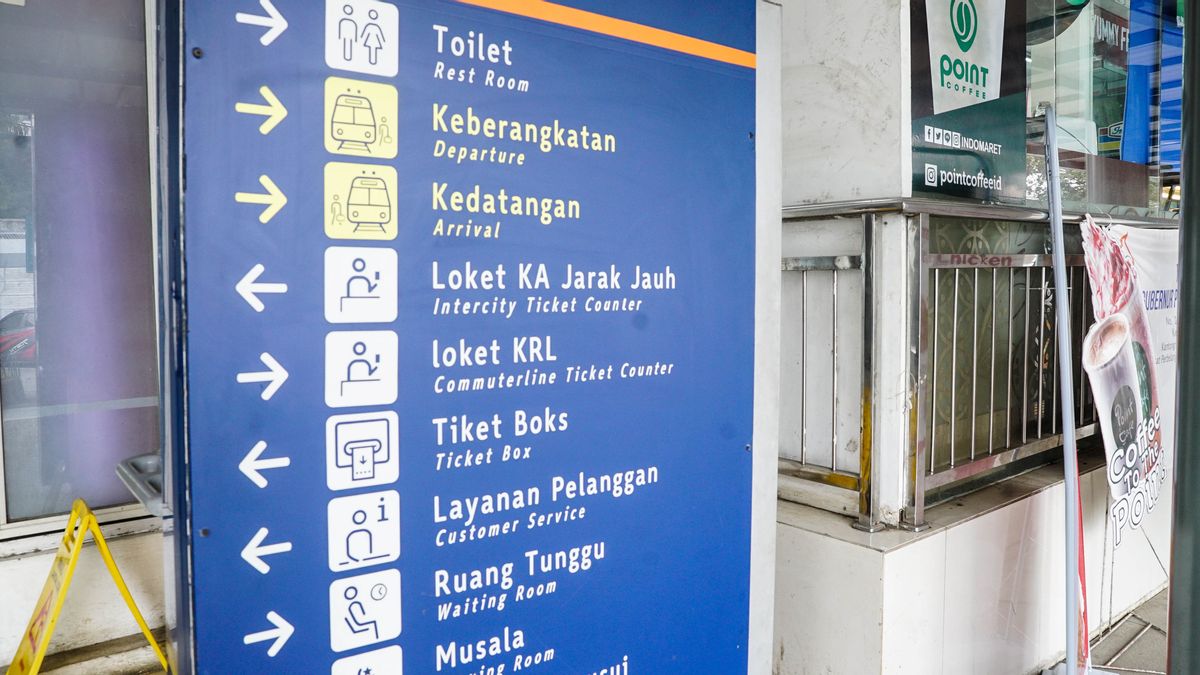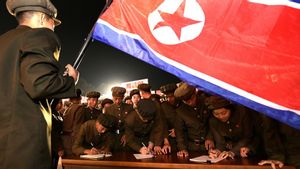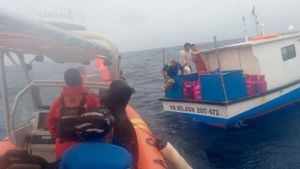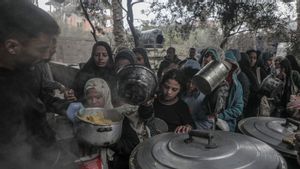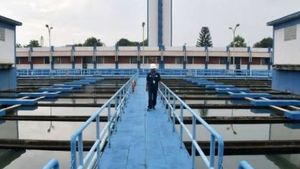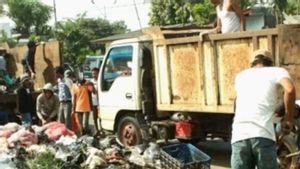JAKARTA - President Joko Widodo officially prohibited people from returning to their hometowns during the Lebaran season starting April 24 this year. This is done to prevent the spread of the corona virus or COVID-19 from spreading.
However, many residents have already returned to their hometowns. Based on the results of an online survey by the Ministry of Transportation's Research and Development Agency (Balitbang), 7 percent of people who have migrated to big cities have gone home, even before entering the month of Ramadan.
This survey had 42,890 respondents participating. Respondents came from Jabodetabek as much as 32.7 percent, then East Java 12.3 percent, Central Java 12 percent, West Java 9.7 percent, the remaining 33.3 percent from other regions throughout Indonesia.
The destination areas for homecoming in sequence are Central Java by 24.2 percent, East Java 23.8 percent, West Java 12.7 percent, Jabodetabek 6.3 percent and the remaining 33 percent to other areas in Indonesia.
There is a time gap from the notification until the day of the implementation of the homecoming ban for two days, resulting in residents having time to prepare for their homecoming departure before the prohibition period begins.
"The delay in the ban on going home has resulted in a message that the public understands as a sign to speed up homecoming before April 24, at the beginning of Ramadan," said public policy observer from the University of Indonesia (UI) Defny Holidin, when contacted by VOI, Tuesday, April 21.
Defny predicts, the ban on going home that will be implemented later will not be very effective. This is because until now the epicenter of the corona virus transmission, such as in the Greater Jakarta area, has only implemented the status of Large-Scale Social Restrictions (PSBB), not regional quarantine.
The flow of transportation, whether from Jabodetabek to outside the region or vice versa, is not prohibited. Even though the police have carried out security for the homecoming route or ketupat operations since the beginning of the month of Ramadan, there have still been no closures of toll roads or arterial roads.
"Of course this PSBB is inadequate. As a policy suggestion from me, the condition of Jabodetabek requires a regional quarantine policy," he explained.
President Joko Widodo took the decision to prohibit people from returning to their hometowns in order to prevent the spread of COVID-19 in various regions.
"At this meeting I would like to convey that we will prohibit all homecoming. Therefore, preparations related to this have begun to be prepared," Jokowi said in a limited meeting some time ago.
Acting Minister of Transportation (Menhub) who is concurrently the Coordinating Minister (Menko) of Maritime and Investment Luhut Binsar Pandjaitan said that this ban will take effect on April 24.
"The ban on going home will be effective starting from Friday, April 24, 2020. There are sanctions, but for the application of sanctions that have been prepared, they will be effective starting May 7," said Luhut.
The homecoming ban is enforced for the Greater Jakarta area and other areas that are included in the Large-Scale Social Restrictions (PSBB), as well as the red zone for the spread of COVID-19. As for its implementation, it will be regulated by the local government.
"The ban on going home will not allow the traffic of people to go out and enter the area, especially Jabodetabek. However, logistics is still justified (entry), it is still permissible for the flow of people inside Jabodetabek or what is known as agglomeration," he said.
Karo Penmas, Public Relations Division of the National Police Headquarters, Brigadier General Argo Yuwono, stated that the National Police would carry out a Ketupat Operation at the beginning of Ramadan, coinciding with the first day of the ban on going home until D + 7 Idul Fitri.
Later, the Police will be on guard at 2582 posts, consisting of PAM posts, then service posts and integrated posts. Service posts exist in 1972 locations. Meanwhile, the PAM posts are occupied by the Police and the TNI, which are used to prevent crime.
"In the prohibition of going home, there will be no closure of toll roads and arterial roads, meaning that all roads will still be passable. However, if the community continues to go home, members will take action," said Argo.
The English, Chinese, Japanese, Arabic, and French versions are automatically generated by the AI. So there may still be inaccuracies in translating, please always see Indonesian as our main language. (system supported by DigitalSiber.id)
